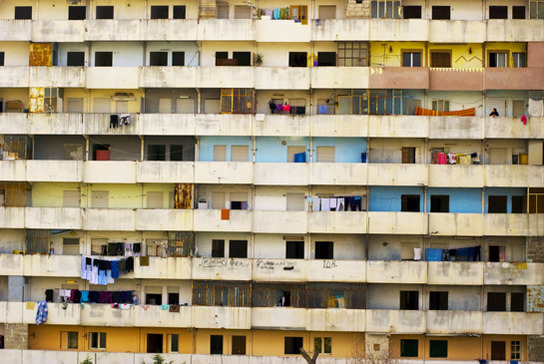ZAGREB (13 July 2010) – UN Special Rapporteur Raquel Rolnik urged on Tuesday* the Croatian authorities to keep moving forward on housing rights issues in the context of the transition and post-conflict recovery, and adopt clear policies to face present and future housing challenges.
“The current housing situation in Croatia is strongly shaped by the effects of the armed conflict on housing, and the transition from a socially-owned housing concept to a private market oriented model,” said the expert designated by the UN Human Rights Council to monitor adequate housing as a component of the right to an adequate standard of living, and on the right to non-discrimination.
“To face the present and upcoming housing challenges,” Ms. Rolnik stressed at the end of her first visit to Croatia, “the Government must adopt comprehensive housing policies to be implemented without discrimination and particularly addressed to vulnerable groups, particularly Roma communities.”
The UN independent expert acknowledged “the immense efforts” by the Croatian authorities to reconstruct damaged houses, return occupied private property, attract new settlers in depopulated areas, and more recently open ground for the return of Croat refugees from abroad. However, she warned that “the process is still to be completed.”
“During my mission, I have encountered on numerous occasions problems created by cumbersome and complex administrative procedures and regulations, which have resulted in a slow, non-transparent and un-accountable processes,” she said, noting that most of the official efforts in recent years have sought to solve the problems of the past.
“However,” the UN Special Rapporteur said, “Croatia is now facing the challenges of the present and the future, and the economic recession in the country has posed additional challenges to the already difficult housing situation.”
In her view, “the private market in the country will never offer an adequate housing solution for the entire population. Low-income, vulnerable, marginalized, and other groups will require the adoption of durable and permanent public housing policies, which currently do not exist at the national level.”
“Adequate housing cannot be treated as a sectorial issue without considering the overall conditions of economic development, access to employment and sources of livelihood and essential social infrastructure,” the UN expert said. “Recovery in areas affected by the conflict, especially in deprived regions, requires a holistic strategy, including economic and social policies as well as a significant investment in a culture of non-discrimination, peace and tolerance.”
The UN Special Rapporteur drew special attention to the more than 70,000 Croatian Serbs who are still refugees after 15 years, residing in neighbouring countries, amongst them, more than 60,000 in Serbia. “The full integration in the country in which they currently reside, and/or their return to Croatia, needs to be addressed jointly by the different governments in the region, especially those of Croatia and Serbia.”
The UN expert also stressed the role of international agencies, including financial institutions, in closing this chapter. “Coherence amongst the policies of these institutions is necessary to make it possible for the Croatian Government to invest in adequate durable housing solutions, especially in a context where the Government is indebted and requested to payback the loans used for its reconstruction, as well as to cutback public expenditures”, she added.
During her ten-day visit, Ms. Rolnik met with high ranking officials and representatives of the national and local government, international agencies as well as non governmental organizations. I have also visited and talked to former and current refugees, internally displaced people, settlers, returnees and other people living in Croatia. Apart from Zagreb, I visited several cities such as Knin, Kistanje, Zadar, Plitvice, Osijek and Vukovar as well as numerous villages in those regions.
The Special Rapporteur will present a report on her mission to Croatia containing her findings and recommendations to the UN Human Rights Council.
Raquel Rolnik (Brazil) was appointed as Special Rapporteur on adequate housing as a component of the right to an adequate standard of living, and on the right to non-discrimination in this context by the United Nations Human Rights Council, in May 2008. As Special Rapporteur, she is independent from any government or organization and serves in her individual capacity. An architect and urban planner, Rolnik has extensive experience in the area of housing and urban policies.
(*) Check the full end-of-mission statement by the Special Rapporteur: http://www.ohchr.org/en/NewsEvents/Pages/DisplayNews.aspx?NewsID=10205&LangID=E


Leave a Reply